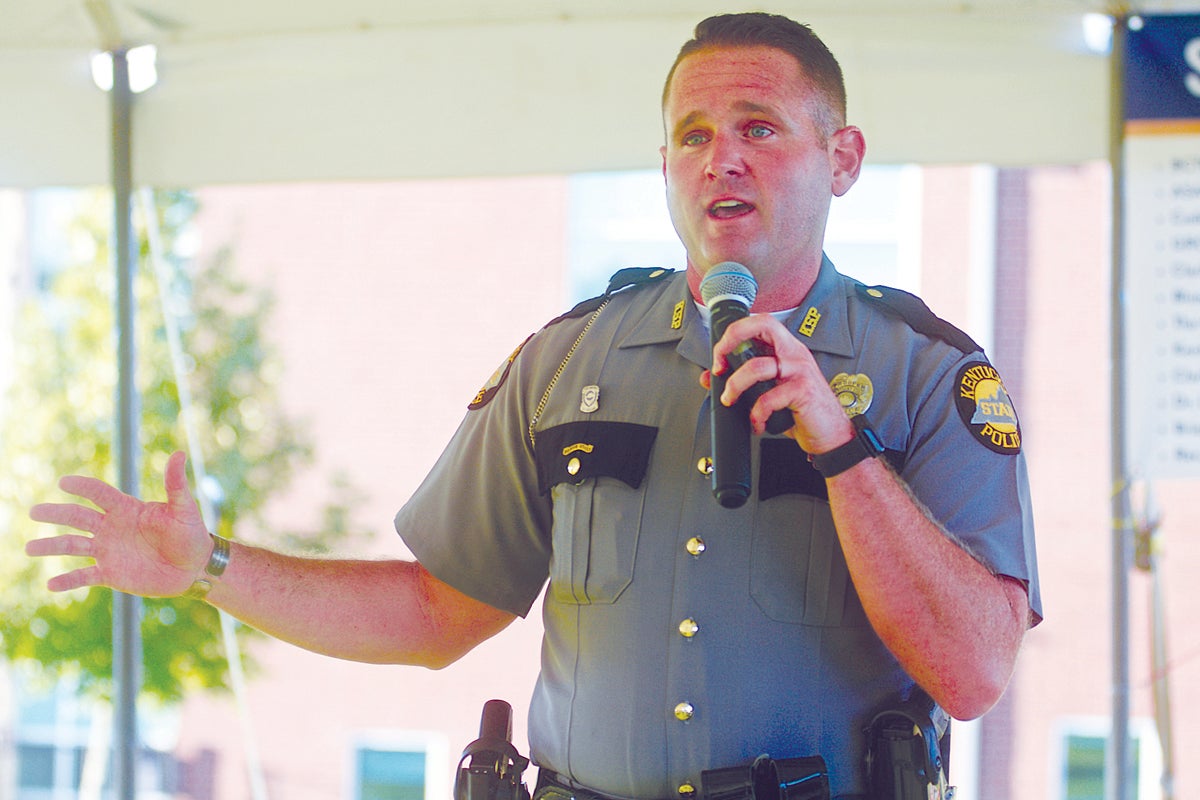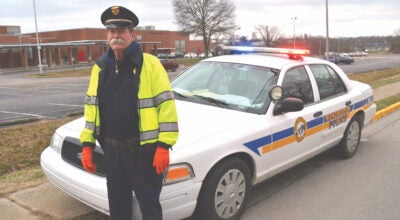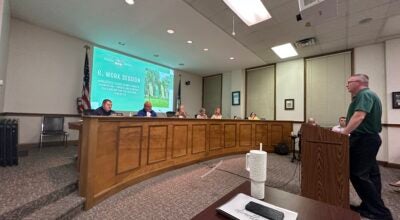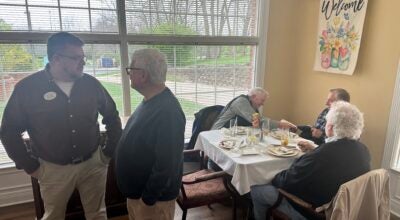Finding dangers in plain sight
Published 10:32 am Monday, September 17, 2018

- Kentucky State Police Trooper Robert Purdy speaks during the 2018 "Dangers in Plain Sight" program. (Sun file photo)
Clark County residents attended the first session of a three-part community education series Thursday at the Winchester-Clark County Bluegrass Community College campus.
The series is a collaboration of the Clark County Agency for Substance Abuse Policy and BCTC to educate and bring awareness to important issues in the Clark County community.
ASAP Coordinator Melissa Stocker said ASAP has been around since 2000, and focuses on prevention, education and treatments. These sessions are one of many efforts in the community dedicated to ending the drug epidemic.
Kentucky State Police Trooper Robert Purdy gave the presentation. Purdy said he started giving these presentations because, after more than 13 years in law enforcement, he’s had his heart broken multiple times.
“I’ve had to tell moms and dads that your son or your daughter isn’t coming home,” Purdy said.
Purdy said drugs have significantly changed over the past decade. In turn, the deaths by drug overdose have increased.
“It doesn’t take long to see we’re trending in the wrong way,” Purdy said. “And every single one of those people that died is someone’s son, daughter, mother, father, family member or best friend. And this world isn’t going to be the same without them.”
As a comparison, Purdy said there are currently 58,282 names on the Vietnam War memorial in Washington D.C. In 2016, more than 64,000 Americans died of drug overdose.
“That’s like losing an entire Vietnam memorial wall every single year,” he said.
Purdy said there’s a similar pattern among addicts. It builds gradually, likely from a young age, perhaps, with alcohol to marijuana to pain medication to heroin and so on. And every step in a person’s life dramatically affects the next, he said.
“Oftentimes, the decision someone makes early in their life is going to determine who they become, where they go,” Purdy said.
It’s like building a stack of rocks. The first rock must be smooth, large, strong, steady. And each rock after that must be able to balance the next — maybe not as large, but equally smooth, strong and stable. But one lousy stone and the stack comes crumbling down, he said.
“We are the result of the decisions we made yesterday,” Purdy said. “And tomorrow will be a result of the decisions that we make today.”
But young people have yet to grasp that concept. Instead, children and teenagers are more in tune with the present.
“They don’t understand the long-term consequences of those decisions,” Purdy said.
Purdy went on to talk about common terminology such as 420, 710, BHO, CCC, lean, budder, nail, dabber, vaping, oil rig, PLUR and loud.
Purdy said teenagers are finding ways to store alcohol or drugs in secret whether it be alcohol-soaked gummy bears or using flasks disguised as tampons, sunscreen, flip flops and more.
People are getting high on cough medicine; “robotripping” on dextromethorphan. Some concoct lean — also known as purple drank, purple lean or dirty sprite. It’s a combination of the prescription-strength cough medicine and soft drinks.
The percentage of THC (Tetrahydrocannabinol) has increased in marijuana, Purdy said. The marijuana people smoked in the 1960s and 70s is not the same as today’s strains.
Purdy said people are also increasing their THC potency by “dabbing” or extracting THC from marijuana using butane and high-heat to create a wax-like — when heated, an oil-like — consistency.
“The oil slick is the new baggie of marijuana,” Purdy said.
People are also “juuling,” a vaporizer that appears to be a high-tech flash drive of sorts, Purdy said.
There are dangerous synthetic drugs in communities and laced-drugs that can be fatal, he said.
Dr. LaTonia Sweet, a behavioral health specialist, also spoke about the importance of having conversations about drugs and alcohol with their children. She said it’s important to remain calm and listen.
“Listen,” Sweet said. “That’s probably the biggest thing. When I see people in their 20s and 30s, they say ‘nobody ever listened to me. Nobody cares. Nobody listened to me. They told me what to do. But they didn’t listen.’”
First Baptist Church Winchester pastor Marvin King Jr. challenged the audience and community to come together, to let the young people in the community know they are valued.
“Many children turn to drugs, whether it’s soft drugs starting out because no one paid attention; because no one cared; because they didn’t feel like they had a voice or value,” King said. “And we have to, as a community, get back to the point where we are raising our children as a community.”
The next two sessions will be “Dangers of Social Media” on Nov. 8 and “Bullying/School Violence” on Jan. 14. All sessions begin with a free dinner at 5:15 p.m. with the course starting at 6:15 p.m.
Clark County Attorney Brian Thomas spoke before the presentation. He said Clark County has a drug problem, but there are many initiatives and community efforts actively working together to combat the issue.
Thomas said it’s crucial the community provides support for addicts rather than shunning them.
“If we say, we’re here, we understand, and we’re willing to devote our time, our attention and our energies to help you, I think that we — as a community — are going to continue to see improvement,” Thomas said.






